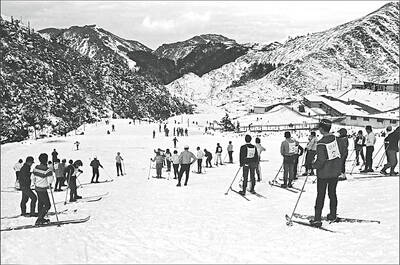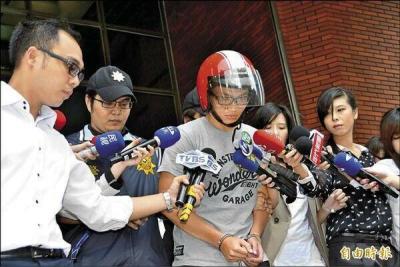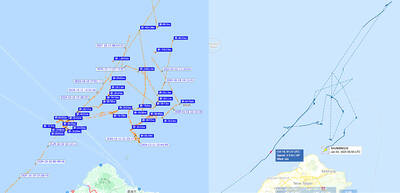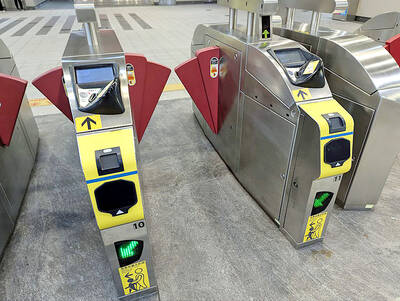A series of bills and amendments passed recently and touted as progress in promoting human rights and tackling corruption has some analysts concerned that the changes will do little to improve the situation while distracting attention from continuing human rights problems.
George Liu (劉志聰), a researcher at the Center for Peace and Strategic Studies, said the government and legislature were inconsistent on their support for human rights.
“The legislature recently passed two UN covenants on human rights, yet [there are concerns] about the actions of police in clamping down on the public and infringing on civil rights when Chinese negotiator Chen Yunlin [(陳雲林) of the Association for Relations Across the Taiwan Strait] was here,” he said.
On March 31, at the request of President Ma Ying-jeou (馬英九), the legislature ratified the International Covenant on Civil and Political Rights and the International Covenant on Economic, Social and Cultural Rights and approved a statute giving them legal force.
Liu said he welcomed reforms to improve human rights, but was concerned by a lack of concrete results.
Shih Cheng-feng (施正峰), a professor of politics at Tamkang University, expressed similar concerns, saying the covenants were being used to “create a semblance of peace.”
It remains to be seen whether the covenants are implemented effectively, Shih said, adding: “The Chinese Nationalist Party [KMT] hasn’t changed a bit.”
CORRUPTION
Earlier this month, lawmakers passed legislation at Ma’s behest that included amendments to the Act for the Punishment of Corruption (貪污治罪條例), which provides for further criminal charges against civil servants who have been convicted of corruption if they fail to account for any abnormally large increases in their assets in the three years after the crime.
The version was altered from that proposed by the Executive Yuan, which would have applied to all civil servants under investigation for corruption.
A stricter version of the Democratic Progressive Party (DPP) would also have applied retroactively to all civil servants who are required to declare assets under the Public Functionary Disclosure Act (公職人員財產申報法) and not just defendants found guilty of corruption.
But Shih called the amendments an example of showcase legislation. Ma and the legislature had little choice but to amend the anti-corruption law to appease the public, he said, but they watered down the legislation to avoid landing KMT members in trouble.
Nanhua University professor Wang Szu-wei (王思為) said the legislative successes were an attempt to allay public anger over government corruption and international concerns that human rights are eroding under the Ma administration.
Wang echoed those concerns, saying the administration may be retrogressing toward the “liberal dictatorship” of Singapore.
Liu said despite the president’s vows to establish clean government, Ma had pinned the blame for corruption on the former DPP administration, which indicated that his statements were politically motivated.
But Tang Shao-cheng (湯紹成), a researcher at National Chengchi University’s Institute of International Relations, said he had no serious concerns about the revised anti-corruption law.
The revision is necessary to prevent future cases like that involving former president Chen Shui-bian (陳水扁), Tang said.
PARADE LAW
Public pressure may also have led Ma’s administration to pledge to “give the streets back to the people” by seeing the Assembly and Parade Act (集會遊行法) amended.
The government has come under fire for allegedly using the legislation to restrict freedom of assembly.
A row over the amendments broke out on Friday, when DPP legislators boycotted a reading, bringing proceedings to a halt for the entire day.
The DPP legislators were angered by the KMT caucus’ decision to place the amendment on the day’s agenda ahead of less controversial bills that concerned people’s livelihood and would not require cross-party negotiations.
KMT legislators, for their part, accused the DPP of blocking the bills scheduled for later in the day.
Liu said the DPP should offer a clear account of its opposition to the amendments so the public would understand the motivation for its boycott.
Shih, meanwhile, said he was worried that the amendments would be a step backward in terms of freedom of assembly.
The amendments have been criticized by civic groups who say they would not loosen police control over peaceful demonstrations.
RESPONSIBLE OPPOSITION
Frank Liu (劉正山), a professor at National Sun Yat-sen University’s Institute of Political Science, said it was regrettable that the DPP was consumed by infighting at a time when serious concerns were being raised about the actions of the government and legislature.
The party is not fulfilling its duty to monitor the KMT’s political manipulation, he said.
The DPP must become a more responsible opposition party and expose the threat of one-party rule, he said.

A strong continental cold air mass and abundant moisture bringing snow to mountains 3,000m and higher over the past few days are a reminder that more than 60 years ago Taiwan had an outdoor ski resort that gradually disappeared in part due to climate change. On Oct. 24, 2021, the National Development Council posted a series of photographs on Facebook recounting the days when Taiwan had a ski resort on Hehuanshan (合歡山) in Nantou County. More than 60 years ago, when developing a branch of the Central Cross-Island Highway, the government discovered that Hehuanshan, with an elevation of more than 3,100m,

Death row inmate Huang Lin-kai (黃麟凱), who was convicted for the double murder of his former girlfriend and her mother, is to be executed at the Taipei Detention Center tonight, the Ministry of Justice announced. Huang, who was a military conscript at the time, was convicted for the rape and murder of his ex-girlfriend, surnamed Wang (王), and the murder of her mother, after breaking into their home on Oct. 1, 2013. Prosecutors cited anger over the breakup and a dispute about money as the motives behind the double homicide. This is the first time that Minister of Justice Cheng Ming-chien (鄭銘謙) has

SECURITY: To protect the nation’s Internet cables, the navy should use buoys marking waters within 50m of them as a restricted zone, a former navy squadron commander said A Chinese cargo ship repeatedly intruded into Taiwan’s contiguous and sovereign waters for three months before allegedly damaging an undersea Internet cable off Kaohsiung, a Liberty Times (sister paper of the Taipei Times) investigation revealed. Using publicly available information, the Liberty Times was able to reconstruct the Shunxing-39’s movements near Taiwan since Double Ten National Day last year. Taiwanese officials did not respond to the freighter’s intrusions until Friday last week, when the ship, registered in Cameroon and Tanzania, turned off its automatic identification system shortly before damage was inflicted to a key cable linking Taiwan to the rest of

TRANSPORT CONVENIENCE: The new ticket gates would accept a variety of mobile payment methods, and buses would be installed with QR code readers for ease of use New ticketing gates for the Taipei metro system are expected to begin service in October, allowing users to swipe with cellphones and select credit cards partnered with Taipei Rapid Transit Corp (TRTC), the company said on Tuesday. TRTC said its gates in use are experiencing difficulty due to their age, as they were first installed in 2007. Maintenance is increasingly expensive and challenging as the manufacturing of components is halted or becoming harder to find, the company said. Currently, the gates only accept EasyCard, iPass and electronic icash tickets, or one-time-use tickets purchased at kiosks, the company said. Since 2023, the company said it